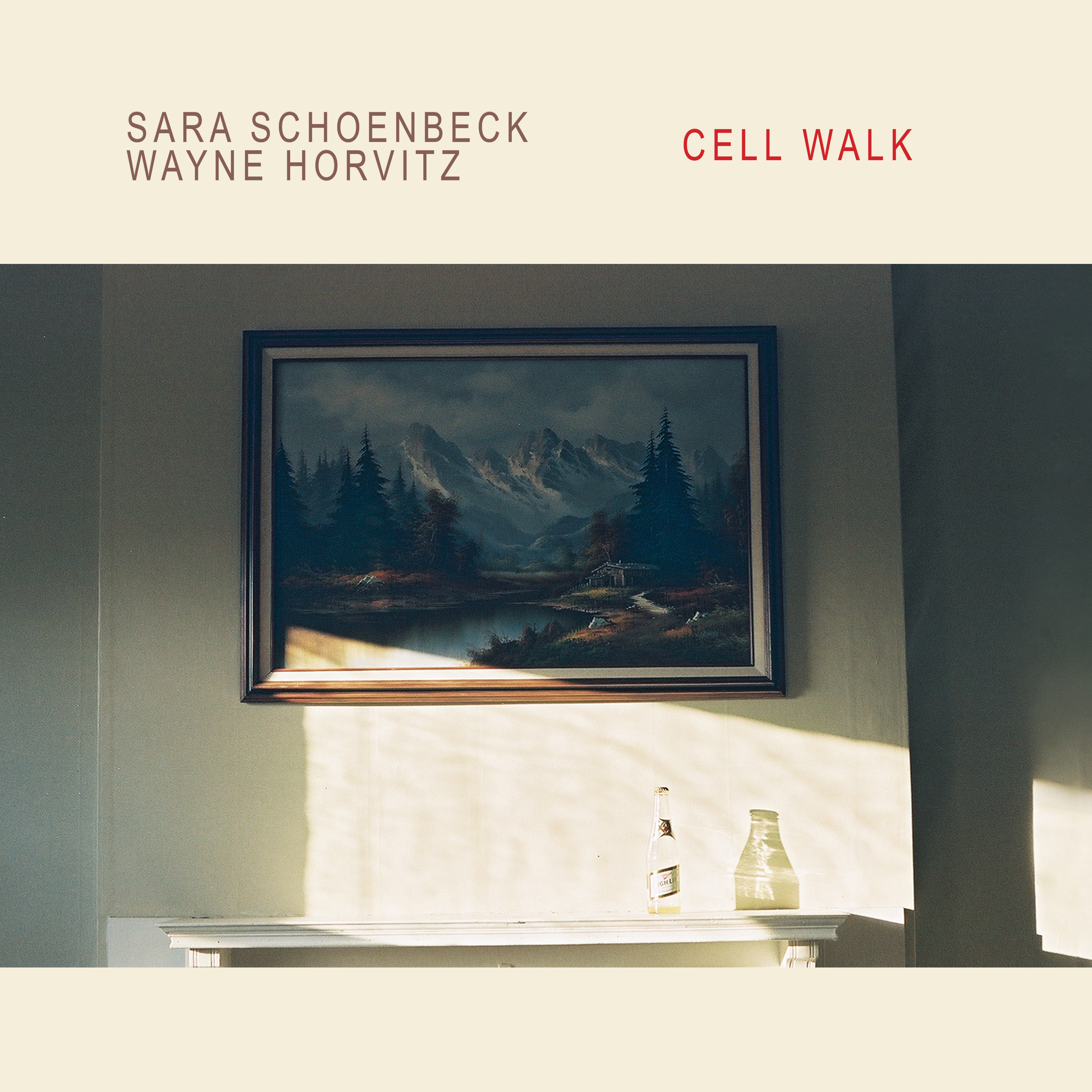Sara Schoenbeck / Wayne Horvitz
Cell Walk
SGL1631-2“Horvitz’s writing for the groups Schoenbeck has graced has made great use of her sound, and that has enhanced their success. Conveying nuanced emotions, often blisteringly beautiful, even when mournful, his Way Out East for the Gravitas Quartet is a case in point.“
– Peter Monaghan, Earshot Jazz
Sara Schoenbeck and Wayne Horvitz have been musical partners for 20 years, notably in Horvitz’s chamber jazz group The Gravitas Quartet (formed 2004) and his Some Days Are Forever Afternoon project (2015 – both on Songlines). They formed this duo in 2018 to play a program of their own music – composed, improvised, and everywhere in between, a study of the crossroads where texture and extended technique meet with and support the expression of melody and song.
As Wayne relates, “We actually recorded an improvised duo on the first Gravitas CD in 2005, which was prescient. Sara has been a guest on a lot of gigs with other bands of mine (especially Sweeter Than the Day) and we have often set aside a duo in a set. She has also performed as an improvising soloist in a number of my classical pieces, including a piece for orchestra and my string quartet These Hills of Glory. Most recently Sara has joined the Snowghost Trio on quite a few shows. A lot of different music!” Sara elaborates: “Wayne’s Gravitas Quartet involving Ron Miles, Peggy Lee and myself was, for me, the perfect blend of thru-composed chamber music and improvisation, always authentic in its transparent and quiet beauty. Some years and projects later Wayne invited me to join a solo concert of his in Chicago. It was a revelation of common language and a relief to play in a duo setting for the expressive yet quiet bassoon. I find great pleasure in this duo, particularly because we often walk between the worlds of improvisation and notated chamber music.”
There is something unexpected and quite special in how beautifully the two instruments blend (mostly acoustically, at other times involving electronics on the piano). As Peter Monaghan points out, “As a double-reed contraption…it’s notoriously difficult to master, let alone import to jazz contexts.” Schoenbeck has received praise for her accomplishments in contemporary music of varied styles, notably in the ensembles SEM, Tri-Centric Orchestra, Wet Ink and Wavefield – the New York Times has called her performances “galvanizing” and “riveting mixing textural experiments with a big, confident sound.” She has also developed a sonic and expressive synergy embracing composed jazz and free improvisation, having frequently worked with artists such as Anthony Braxton, Roscoe Mitchell, Michael Leonhart and Nels Cline. “I have always been interested in bringing the bassoon into as many musical arenas as possible. It is a very flexible instrument that allows for large leaps and sotto voce possibilities, and the unique mechanics of the modern bassoon make it a natural for the exploration of non-traditional extended techniques.”
Horvitz’s instrument for the main session at Pyatt Hall in Vancouver is a “very beautiful and beautifully maintained Steinway D…I felt strongly that we should record in a hall, because I felt that our best gigs had been in halls. It’s harder in some ways and there is less control; the stereo mics are the main mics so there isn’t much mixing to be done past a certain point, so the ensemble playing has to be right in the recording…there are some close mics which we used in the mix when we could.”
A studio session in Brooklyn six months later added six pieces involving electronics: “We both felt that some more open playing was missing, and also the sonic elements we can explore when I incorporate the electronics. (My pedal setup is pretty basic: a tremolo, an 8 second delay, a simple delay and a reverb pedal.)” Sara: “It is easy to fall into musical patterns when improvising. The electronics, even if they are subtle, shake us into a different sonic space which is decidedly refreshing.”
The Brooklyn session includes the title track, which was composed shortly after Cecil Taylor passed and references “Cell Walk for Celeste,” an enigmatic title on an early Cecil record and a tune that Wayne had always liked. In addition are “Tin Palace” and four of the improvisations (tracks 2, 4, 10 and 16). Horvitz’s 10 compositions that made it onto the record include several canonical favorites: “Ironbound,” “American Bandstand” and also “No Blood Relation” from The Snowghost Sessions (2018). Sara’s two pieces “actually made it on the page quite a while ago but there are sections of each piece that are specifically written for this duo.”
